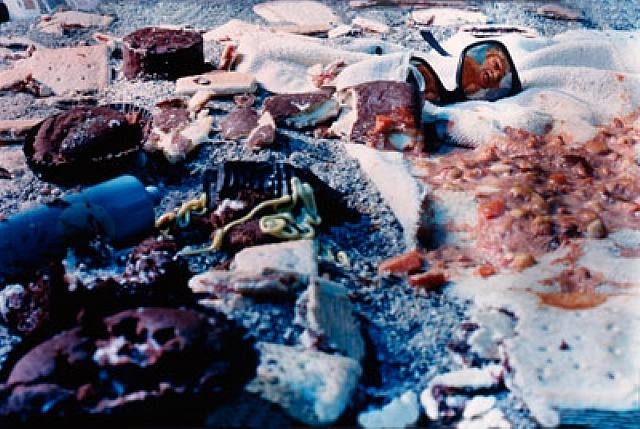We are here. After months of angst, tears, sweat, more reading than you can imagine, and rehearsals upon rehearsals, we are in our final week at RADA. I can't actually believe that I am here. It honestly feels like mere weeks ago that we were all crammed into the tiny basement studio on the first day, receiving our RADA booklets and cautiously selecting whether we would do scene study with Tom or Andrew.
I have learned so much about myself in this year. I have learned that I can make some pretty interesting theatrical pieces. I have learned that I can maybe, sort of, write a little. I have learned that the times when I feel most comfortable about a piece of work, those are the times when I haven't done enought. I have learned that I really like to scare myself into action. I have also learned from (and with) some of the most brilliant and talented people I have ever had the opportunity to be in the same room as. Tutors, obviously, but more importantly my fellow students, whose intellect, bravery, and talent have pushed me to become a better artist every minute of every day. I only wish that we could stay together and create work, rather than scatter the globe as we are bound to do. I will do everything possible to work with each of them again in the future.
So. . . as the title states, the time to hesitate is through. Dissertation performances are underway. I am assisting by performing in two presentations; Dena Rysdam Miller's adaptation of The Little Prince, and Holly Sharp's devised piece Nil by Mouth, about mental illness. I will also be reading a new play in development for Nika Obdizinski.
Largest looming in my future is my own piece - No More Prayers - an interrogation of Antigone through dramatic and philosophical history. Creating this piece has been a rollercoaster, and it has morphed to something completely different from what I first imagined, although simultaneously it continues to be an embodiment of that first seed of an idea. The piece I have ended up with is (I hope) the start of something bigger, that will continue and develop into a full production down the road. Thursday will be a "first viewing" for the work-in-progress, and I hope to share some photos and video of the presentation as well as the subsequent Q&A.
For all intents and purposes, the blog will be dark until mid next week, at which time I will try to make sense of this all. And wrap my head around the final written aspect of the dissertation, not to mention my impending move back to Canada and everything that entails.
In other news, I can happily announce that I will be directing a handful of readings for new plays at Sarasvati FemFest in September (Winnipeg) and will also be developing a piece titled Dear Mama, inspired by Sondheim's Gypsy for the RMTC SondheimFest in early 2013 (Winnipeg). More on those later, once I regain sanity.
Image: Cindy Sherman, Untitled 175
I have learned so much about myself in this year. I have learned that I can make some pretty interesting theatrical pieces. I have learned that I can maybe, sort of, write a little. I have learned that the times when I feel most comfortable about a piece of work, those are the times when I haven't done enought. I have learned that I really like to scare myself into action. I have also learned from (and with) some of the most brilliant and talented people I have ever had the opportunity to be in the same room as. Tutors, obviously, but more importantly my fellow students, whose intellect, bravery, and talent have pushed me to become a better artist every minute of every day. I only wish that we could stay together and create work, rather than scatter the globe as we are bound to do. I will do everything possible to work with each of them again in the future.
So. . . as the title states, the time to hesitate is through. Dissertation performances are underway. I am assisting by performing in two presentations; Dena Rysdam Miller's adaptation of The Little Prince, and Holly Sharp's devised piece Nil by Mouth, about mental illness. I will also be reading a new play in development for Nika Obdizinski.
Largest looming in my future is my own piece - No More Prayers - an interrogation of Antigone through dramatic and philosophical history. Creating this piece has been a rollercoaster, and it has morphed to something completely different from what I first imagined, although simultaneously it continues to be an embodiment of that first seed of an idea. The piece I have ended up with is (I hope) the start of something bigger, that will continue and develop into a full production down the road. Thursday will be a "first viewing" for the work-in-progress, and I hope to share some photos and video of the presentation as well as the subsequent Q&A.
For all intents and purposes, the blog will be dark until mid next week, at which time I will try to make sense of this all. And wrap my head around the final written aspect of the dissertation, not to mention my impending move back to Canada and everything that entails.
In other news, I can happily announce that I will be directing a handful of readings for new plays at Sarasvati FemFest in September (Winnipeg) and will also be developing a piece titled Dear Mama, inspired by Sondheim's Gypsy for the RMTC SondheimFest in early 2013 (Winnipeg). More on those later, once I regain sanity.
Image: Cindy Sherman, Untitled 175

